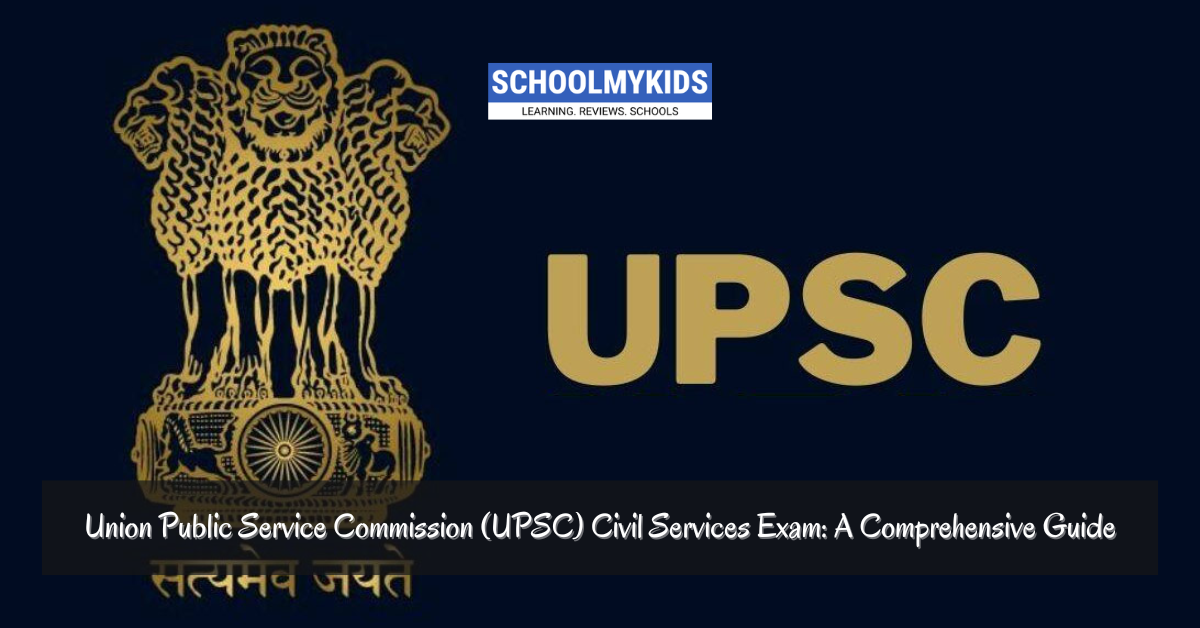The Union Public Service Commission (UPSC) Civil Services Exam is one of the most prestigious and challenging examinations in India. It is the gateway to the country's premier civil services, including the Indian Administrative Service (IAS), Indian Foreign Service (IFS), and Indian Police Service (IPS), among others. This article provides a comprehensive guide to understanding the UPSC Civil Services Exam, its structure, preparation strategies, and the significance of these esteemed services.
Understanding the UPSC Civil Services Exam
The UPSC Civil Services Exam is conducted annually in three stages: the Preliminary Examination, the Main Examination, and the Personality Test (Interview). Each stage is crucial and requires a unique approach to preparation.
Preliminary Examination
The Preliminary Examination, commonly known as the prelims, is the first hurdle in the UPSC journey. It consists of two objective-type papers:
- General Studies Paper I: This paper tests a candidate's knowledge in areas like History, Geography, Polity, Economy, Environment, and Current Affairs.
- General Studies Paper II (CSAT): This paper assesses the candidate's aptitude in comprehension, logical reasoning, analytical ability, decision-making, and basic numeracy.
The prelims serve as a screening test, and only those who qualify are eligible to appear for the Main Examination.
Main Examination
The Main Examination, or the mains, is the second stage and is descriptive in nature. It consists of nine papers, of which two are qualifying in nature, and the remaining seven are counted for merit:
- Paper A: Indian Language (qualifying)
- Paper B: English (qualifying)
- Essay: Writing two essays on topics of national and international importance.
- General Studies Papers I-IV: Covering topics such as Indian Heritage and Culture, Governance, Technology, Economic Development, Ethics, and Integrity.
- Optional Subject Papers I & II: Candidates choose one subject from a list of optional subjects and write two papers on it.
The mains exam demands an in-depth understanding of diverse subjects and the ability to articulate thoughts clearly and concisely.
Personality Test (Interview)
The Personality Test, or the interview, is the final stage of the UPSC Civil Services Exam. It assesses the candidate's personality, communication skills, and overall suitability for a career in civil services. The interview panel, comprising experienced members, evaluates the candidate's mental alertness, critical powers of assimilation, balance of judgment, and intellectual and moral integrity.
Services Included in the UPSC Civil Services Exam
Clearing the UPSC Civil Services Exam qualifies candidates for a range of services, including:
- Indian Administrative Service (IAS)
- Indian Foreign Service (IFS)
- Indian Police Service (IPS)
- Indian P&T Accounts and Finance Service (IP&TAFS)
- Indian Audit and Accounts Service (IA&AS)
- Indian Revenue Service (IRS)
- Indian Defence Accounts Service (IDAS)
- Indian Revenue Service (Customs and Indirect Taxes)
- Indian Ordnance Factories Service (IOFS)
- Indian Postal Service (IPoS)
- Indian Civil Accounts Service (ICAS)
- Indian Railway Traffic Service (IRTS)
- Indian Railway Accounts Service (IRAS)
- Indian Railway Personnel Service (IRPS)
- Post of Assistant Security Commissioner in Railway Protection Force (RPF)
- Indian Defence Estates Service (IDES)
- Indian Information Service (IIS)
- Indian Trade Service (ITS)
- Indian Corporate Law Service (ICLS)
Each service offers distinct roles and responsibilities, contributing significantly to the administration and development of the country.
Significance of the UPSC Civil Services
Clearing the UPSC Civil Services Exam opens the door to a career that offers immense responsibilities, challenges, and opportunities to contribute to nation-building. Here are a few reasons why the civil services are highly regarded:
- Diverse Career Opportunities: Civil servants work in various capacities across the country, handling critical functions in administration, law enforcement, foreign diplomacy, and public policy.
- Public Service and Nation-Building: Civil servants play a pivotal role in implementing government policies, ensuring public welfare, and maintaining law and order.
- Prestige and Respect: Being part of the Indian civil services is a matter of great pride and honor. Civil servants are respected for their dedication to serving the nation.
Preparation Strategies for UPSC Civil Services Exam
Preparing for the UPSC Civil Services Exam requires a strategic approach, consistent effort, and a deep understanding of the syllabus. Here are some key strategies to help aspirants navigate their preparation journey:
- Understand the Syllabus and Exam Pattern: Familiarize yourself with the detailed syllabus and exam pattern. Knowing what to study and how to approach each paper is crucial for effective preparation.
- Develop a Study Plan: Create a realistic and well-structured study plan. Allocate time for each subject, revision, and practice tests. Consistency and discipline are key to staying on track.
- Read Standard Books and Reference Materials: Refer to standard textbooks and reference materials for each subject. NCERT books, along with other recommended texts, provide a strong foundation.
- Stay Updated with Current Affairs: Regularly read newspapers, magazines, and online resources to stay updated with current affairs. Focus on national and international events, government policies, and socio-economic issues.
- Practice Answer Writing: Answer writing is a critical skill for the mains exam. Practice writing answers within the word limit and time constraints. Review and refine your answers to improve clarity and coherence.
- Take Mock Tests: Regularly take mock tests to assess your preparation level. Mock tests help identify strengths and weaknesses, improve time management, and build exam temperament.
- Revise Regularly: Revision is essential to reinforce what you have learned. Regularly revise your notes and key concepts to ensure retention and recall during the exam.
Challenges and Rewards of UPSC Preparation
Preparing for the UPSC Civil Services Exam is a rigorous and demanding process. Aspirants often face challenges such as vast syllabus coverage, time management, and maintaining motivation. However, the journey is equally rewarding in terms of personal growth and the eventual goal of serving the nation.
Challenges
- Vast Syllabus: The extensive syllabus can be overwhelming. Breaking it down into manageable sections and focusing on one topic at a time can help.
- Time Management: Balancing study time with personal life can be challenging. A well-planned schedule and setting realistic goals are essential.
- Stress and Motivation: The long preparation period can lead to stress and burnout. Maintaining a positive attitude, taking breaks, and seeking support from family and peers are crucial.
Rewards
- Personal Growth: The preparation process enhances critical thinking, analytical skills, and knowledge across various subjects.
- Career Opportunities: Clearing the exam opens doors to prestigious career opportunities in the civil services.
- Contribution to Society: The ultimate reward is the opportunity to serve the nation and make a meaningful impact on society.
Conclusion
The UPSC Civil Services Exam is a journey of determination, perseverance, and unwavering commitment. While the path is challenging, the rewards of becoming a civil servant are unparalleled. With the right strategy, consistent effort, and a deep sense of purpose, aspirants can achieve their dream of joining the esteemed Indian civil services and contributing to the nation's growth and development.








Be the first one to comment on this story.